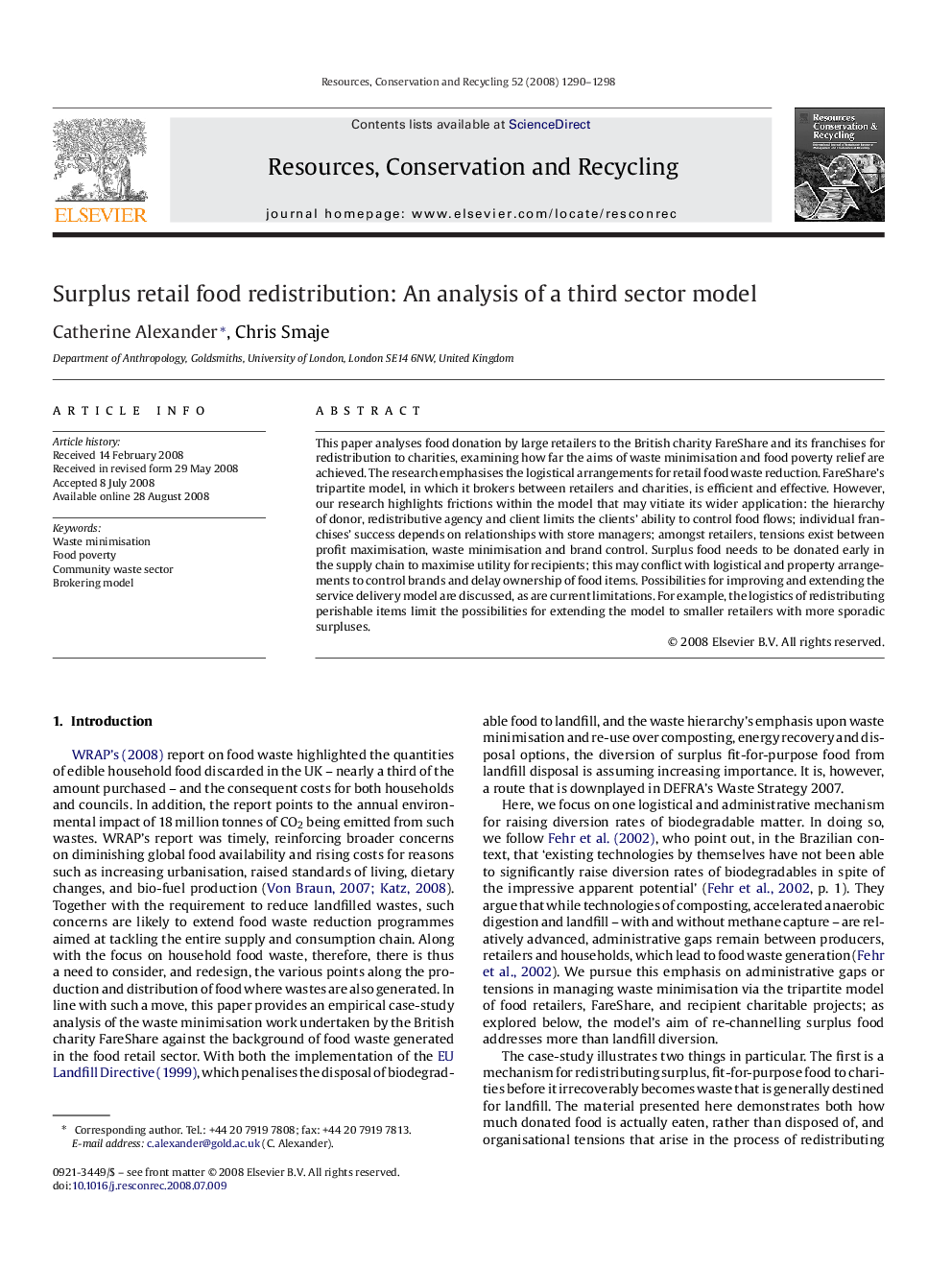| Article ID | Journal | Published Year | Pages | File Type |
|---|---|---|---|---|
| 1063593 | Resources, Conservation and Recycling | 2008 | 9 Pages |
This paper analyses food donation by large retailers to the British charity FareShare and its franchises for redistribution to charities, examining how far the aims of waste minimisation and food poverty relief are achieved. The research emphasises the logistical arrangements for retail food waste reduction. FareShare's tripartite model, in which it brokers between retailers and charities, is efficient and effective. However, our research highlights frictions within the model that may vitiate its wider application: the hierarchy of donor, redistributive agency and client limits the clients’ ability to control food flows; individual franchises’ success depends on relationships with store managers; amongst retailers, tensions exist between profit maximisation, waste minimisation and brand control. Surplus food needs to be donated early in the supply chain to maximise utility for recipients; this may conflict with logistical and property arrangements to control brands and delay ownership of food items. Possibilities for improving and extending the service delivery model are discussed, as are current limitations. For example, the logistics of redistributing perishable items limit the possibilities for extending the model to smaller retailers with more sporadic surpluses.
